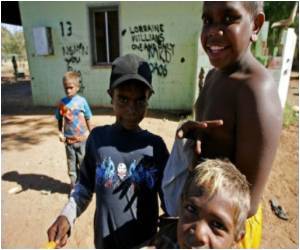An Australian TV channel has begun broadcasting the first lessons in an Aboriginal language with a motive to help young children stay in touch with their native dialects.

The show, broadcast daily and repeated on Saturdays, started last month with 13 half-hour episodes and proved so popular the entire series is now being screened again.
"I realised while working with Aboriginal communities that kids weren't talking with their grandparents in their language," producer Cath Trimboli, told AFP.
"It is disappearing, kids are not encouraged to talk in this language. So I wanted to work on this."
Noongar is one of about 60 indigenous languages still spoken in Australia, compared with about 250 -- and up to 700 dialects -- in circulation at the time of white settlement in 1788. Of 13 Noongar dialects, just five now remain.
"Among these 60 (languages), there would be only six or seven that are passed naturally from parents to children," John Hobson, a University of Sydney lecturer in indigenous studies, told AFP.
Advertisement
"It was considered as the Devil's tongue. And parents began to want their kids to speak English: when people are told again and again that speaking their language is bad, they end up believing it," he said.
Advertisement
Bilingual schools have opened in the Northern Territory and Western Australia, while about 60 New South Wales schools offer courses in native languages.
"The program is not only for Aboriginal kids but for everyone. I hope it paves the way for other people to seriously think of the importance of languages," Trimboli said.
According to Hobson, TV programmes alone cannot save endangered languages, but they can increase their profile.
"It is very difficult to save a language, it requires the whole community efforts. TV programmes alone can't restore them, but they raise awareness," he said.
Aborigines have a history extending over about 40,000 years, the world's oldest surviving culture, but are often marginalised and impoverished in modern Australia, where they make up about two percent of the 22 million population.
Source-AFP
SAV










